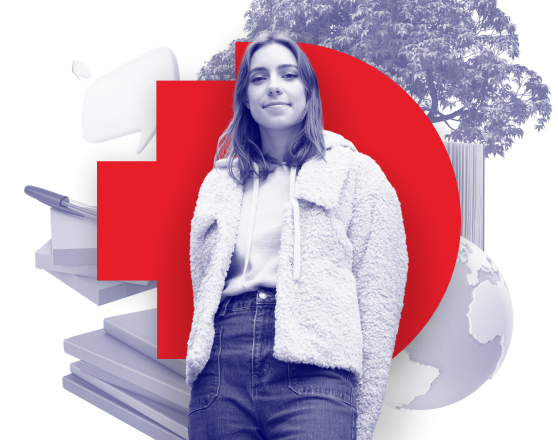[Start of transcript]
AUDIO: Uplifting orchestral music.
VISUAL: Scenes of city life.
NARRATOR SPEAKS: Ever wonder how a community kind of just happens? Because it's a bit of a small miracle. The places we live are like theatres where hundreds, thousands, and sometimes millions of people are simultaneously living, eating, buying, selling, making, working, romancing, moving, building.
TEXT ON SCREEN: living, eating, buying, selling, making, working, romancing, moving, building.
NARRATOR SPEAKS: It's amazing the whole thing doesn't all fall apart, but have you ever thought about what's going on behind the scenes?
TEXT ON SCREEN: PIA Planning Institute Australia logo.
DIRECTOR SPEAKS: Cut!
TEXT ON SCREEN: Before I go any further, I am not talking about event planning here. And then a bit later further text appears that gives a definition of planning.
VISUAL: Images of the city and city life. Various text appears to emphasis what the narrator is saying.
NARRATOR SPEAKS: Before I go any further, I am not talking about event planning here. This has nothing to do with weddings. Planning is the process through which governments, businesses, and residents come together to shape their communities.
NARRATOR SPEAKS: It's so important, there's an entire profession dedicated to it. Planners, like the communities they work in, the planning profession is complex and diverse. Some planners work on issues like housing, working towards providing safe and affordable places to live in.
VISUAL: Scenes of transport and roads.
NARRATOR SPEAKS: Other planners work in transport, improving networks of roads, trails, bus routes, foot paths, and bike lanes to help everyone get around, but that's just the tip of the iceberg. Planners are also involved in design, protecting heritage, promoting energy efficiency, celebrating arts and culture, protecting the environment and protecting places from flooding or fire or drought because climate change.
NARRATOR SPEAKS: The list goes on and on and on, and whether they work in government, the private sector, or in not-for-profits, planners are tasked with finding solutions to those issues.
VISUAL: Scenes of people planning events, starting at whiteboards and the like.
NARRATOR SPEAKS: They conduct research, consult with professionals, they analyse and try to predict the future, and, in the process, they write reports, give presentations, talk to the community, create models and designs, and make maps.
VISUAL: Various scenes of people organising and planning follow.
NARRATOR SPEAKS: They make lots and lots of maps. And when all of that comes together, planners, well, they plan. They create policies and promote good planning outcomes to help guide communities towards the future. But good planning isn't just a document, it's a process, one that consults and collaborates with people. It's key that planners recognise change and work with communities to plan for it rather than being overwhelmed by it.
VISUAL: Many shots featuring people and paperwork follow in a montage.
WOMAN SPEAKS: What?
NARRATOR SPEAKS: But above all, planning is an attitude. One that firmly believes that when people work together, they can make a difference. And that's planning in a nutshell, or at least what we can say about planning in a minute or two.
SOUND EFFECT: Girl crunches on nut - Mm.
VISUAL: Various images of the cityscape and buildings.
NARRATOR SPEAKS: It can seem like organised chaos at times, but that's the hard work that goes on behind the scenes to make sure that our communities are enjoyable and worthwhile to live in.
SOUND EFFECT: bike bell rings
NARRATOR SPEAKS: If you want to learn more about planning and the profession, check out the Planning Institute on their website at www.planning.org.au
TEXT ON SCREEN: Planning website: www.planning.org.au
[End of transcript]








